‘Buying a ticket shouldn't be a performance!’:
Launch of new theatre accessibility scheme
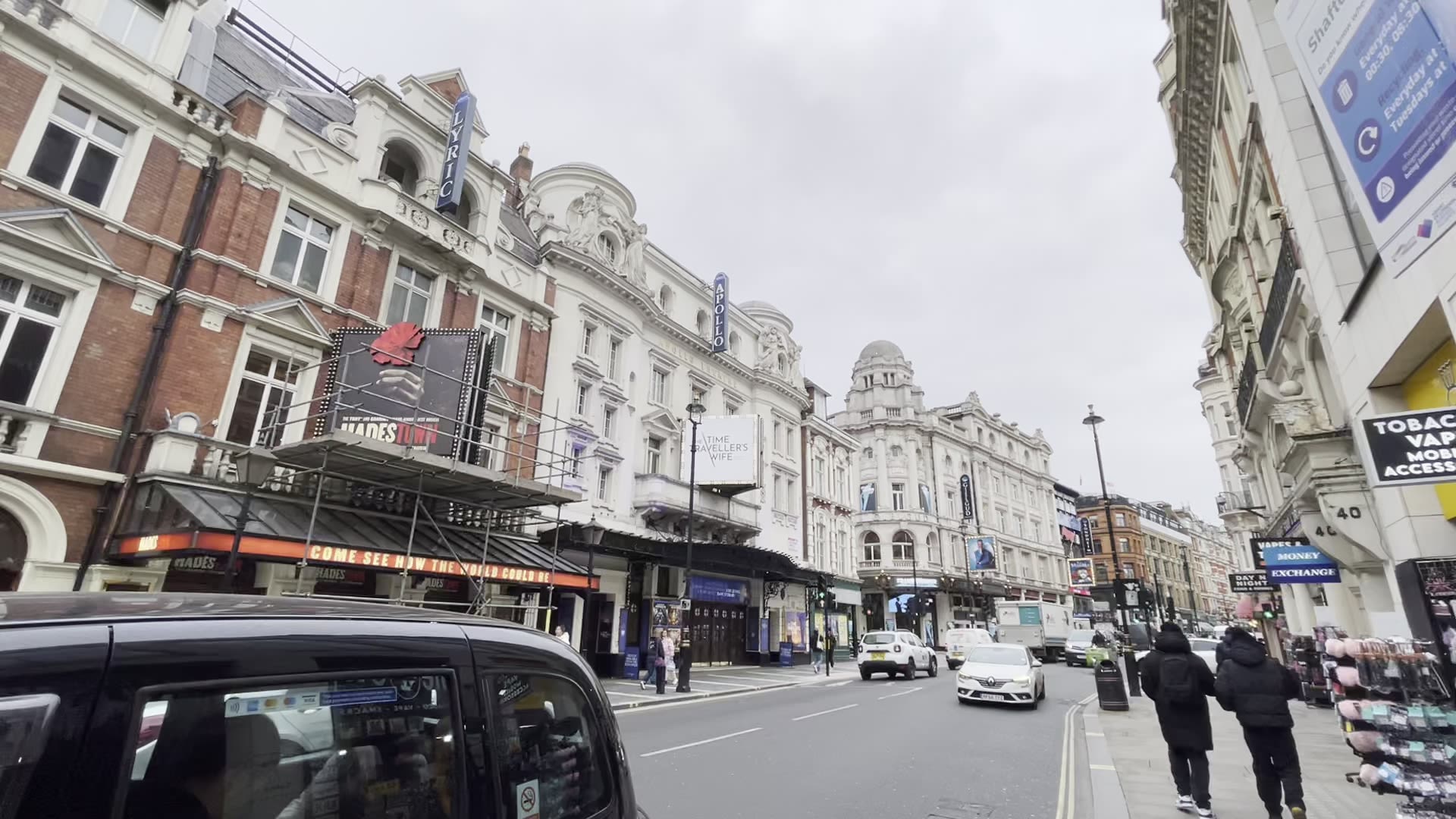
Charley-Anne Gordon, a lawyer from Hitchin, loves going to the theatre. She tells me: "There definitely are different things in place to help you access shows as a disabled person and as a wheelchair user. However, it still is very, very difficult."
For example, she always arrives at the theatre several hours before a show starts, because: "If I'm going to a show, particularly in London, I never know where I'm going as it's not always the main entrance."
Additionally, there have been times when upon arrival, theatre staff tell her that the disabled toilet is out of order: "If you're somebody who can only use the disabled toilet and they only have one, which is out of order, that's the point where you're like, actually, I can no longer go to this show because I don't have access to a toilet. And that happens more than you'd think."
Charley says industry standards must change and the new All In scheme is hoping to do just that.
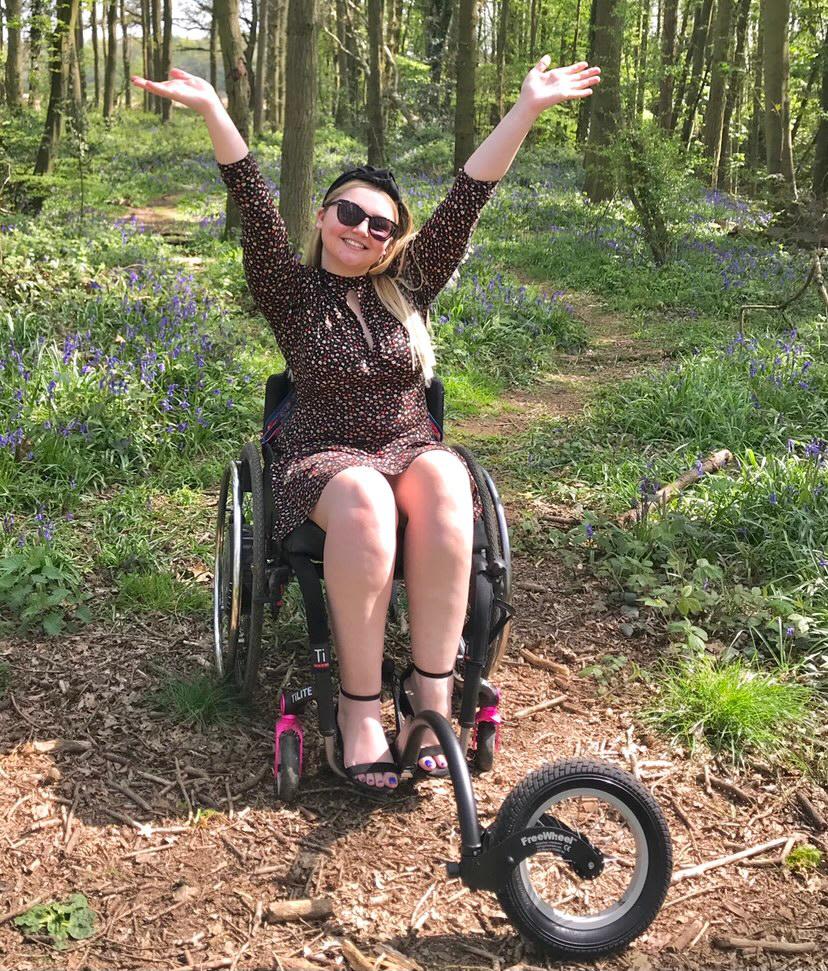
Charley-Anne Gordon at Bluebell Forest. Photo credit: Charley-Anne Gordon
Charley-Anne Gordon at Bluebell Forest. Photo credit: Charley-Anne Gordon

Charley-Anne Gordon at Bluebell Forest. Photo credit: Charley-Anne Gordon
Charley-Anne Gordon at Bluebell Forest. Photo credit: Charley-Anne Gordon

Last November, Arts Council England announced the launch of its new theatre accessibility scheme, All In, after a successful trial run.
All In aims to help organisations improve the way they publicise their access requirements, as well as provide training and support to help venues meet sector-backed accessibility standards. The scheme is expected to launch later this year.
Charley told me: "I think schemes like this are necessary to get people talking about the topic, but you also need parties to listen to what the issues actually are, which I don't think they always do."
Beth Pugh, from Manchester, said: “I have a limit to how many stairs I can climb and finding information online about step-free access is almost impossible and a lot of places won't advertise or offer a lift or step-free seats without being in a wheelchair.
"I'm happy the scheme exists and something is trying to be done, but so often these schemes don't listen to disabled voices or don't do enough and so any large scheme, although it could be exciting and really effectively open up more opportunities, until disabled creatives and activists are fully involved it's safer to not get our hopes up.”
She added: "I'm also autistic which means that I really benefit from relaxed performances and accessibility info, which is improving, but on the whole is still too few and far between."
Discussing relaxed performances with Annie Bannister, Access and Inclusion Consultant:
Recently, the Ambassadors Theatre, London underwent works to its main entrance.
A spokesperson said: "The Ambassadors Theatre has just completed a heritage refurbishment which includes full provision of access to the Stalls comprising a marble ramp from street level, a lift for wheelchair users and others with reduced mobility, accessible washroom facilities and four seating positions allowing users to remain in their chairs during the performance.
"There is also a brand new Mobile Connect audio accessibility system."
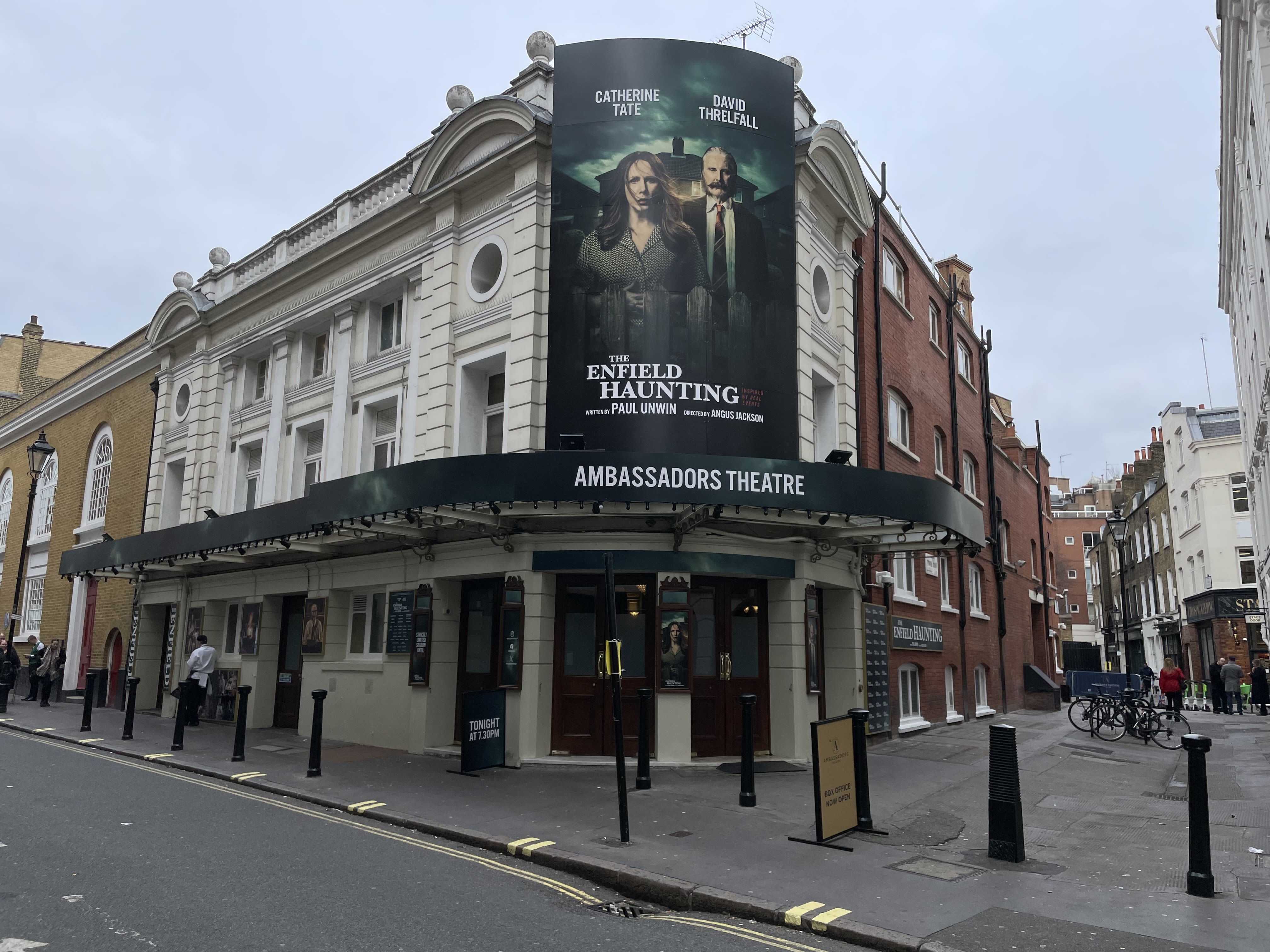
The Ambassadors Theatre where The Enfield Haunting is currently playing. Photo credit: Amelia Braddick
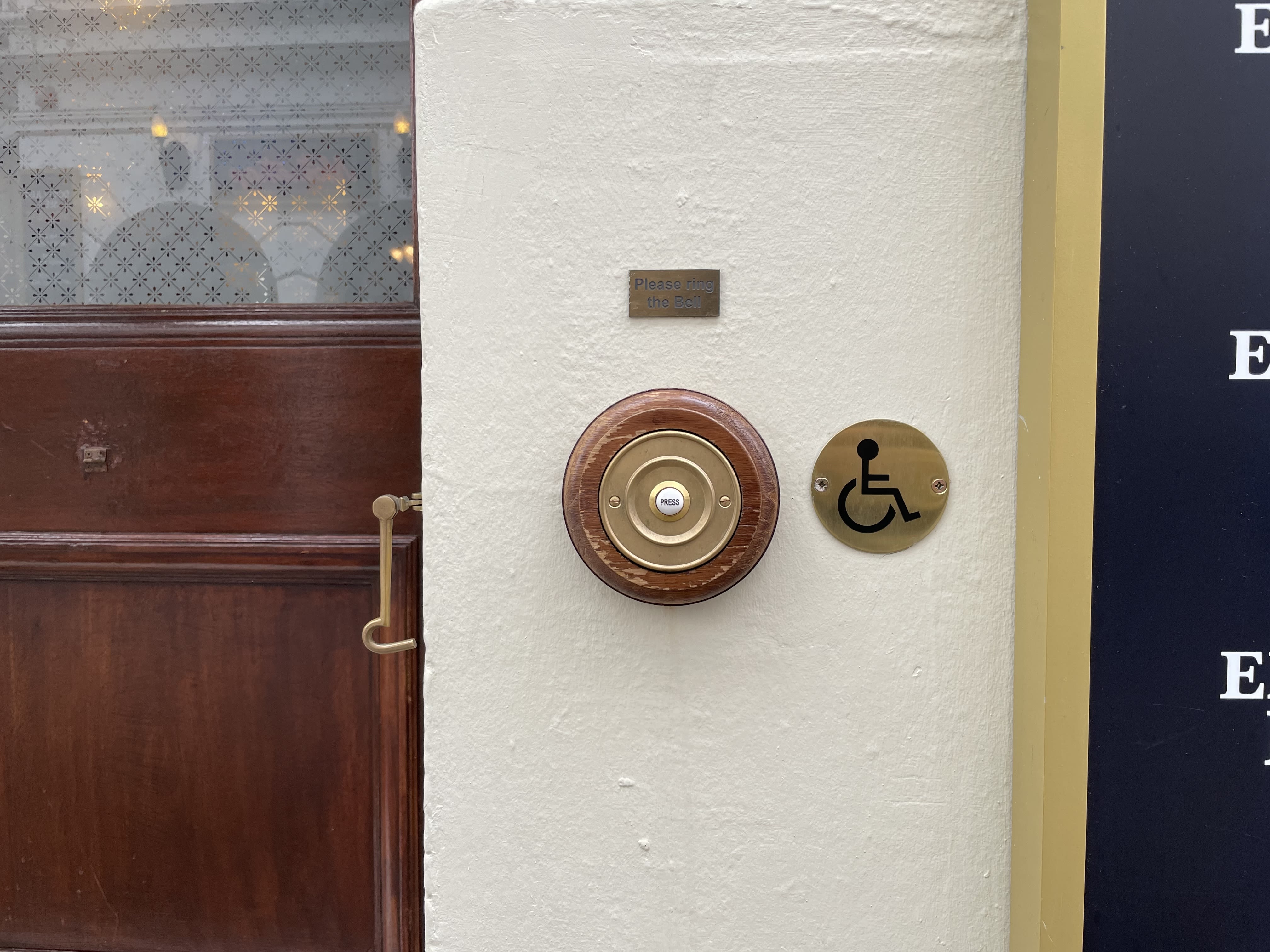
The Ambassadors Theatre's accessible entrance. The sign reads 'Please ring this bell.' Photo credit: Amelia Braddick
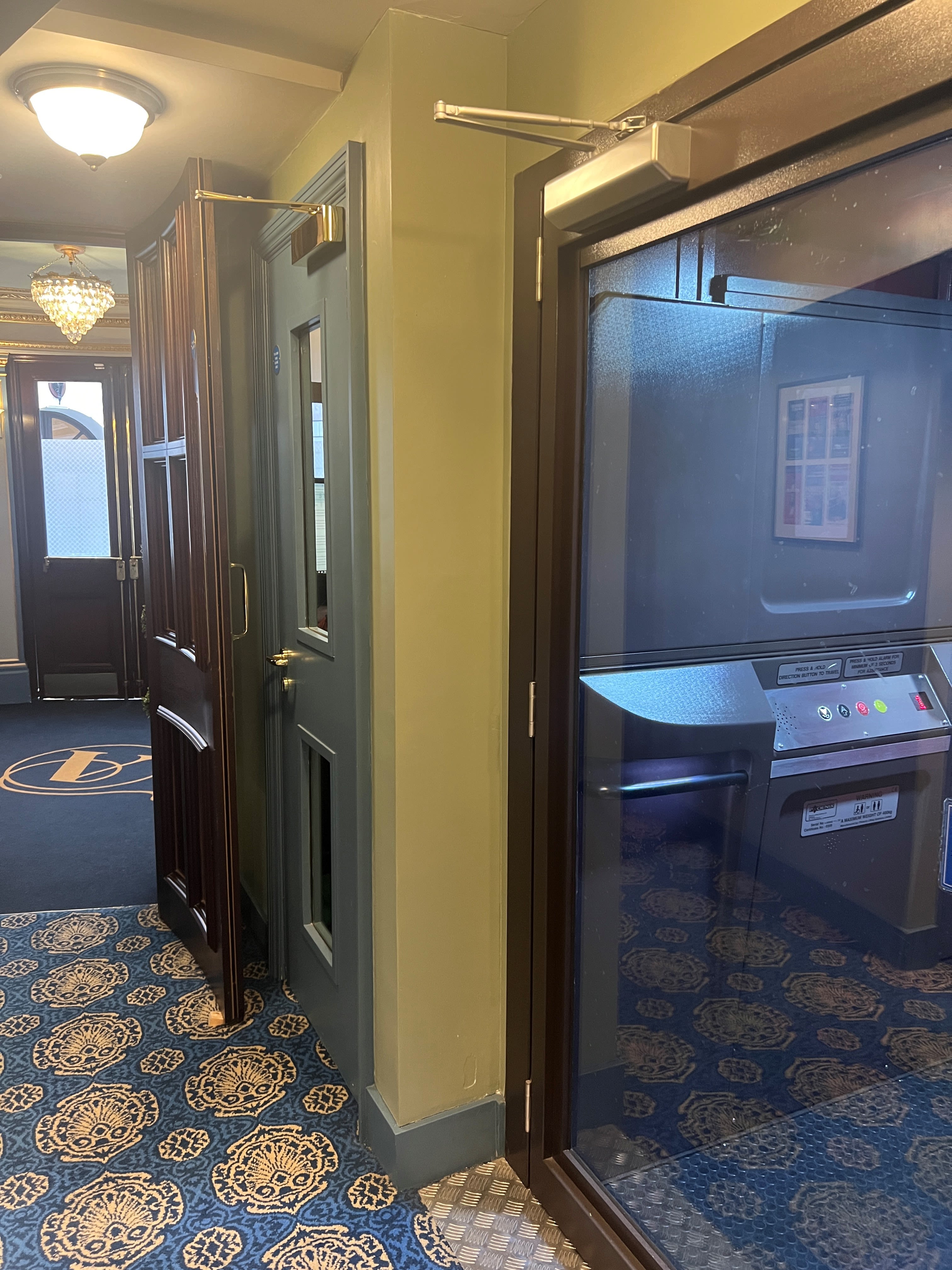
The accessible lift at the Ambassadors Theatre. Photo credit: Max Shuell
Discussing common issues at the theatre with Annie Bannister, Access and Inclusion Consultant:
Andrew Miller MBE, UK Arts Access Champion for All In said: “I want All In to fundamentally improve the experience of D/deaf, disabled and neurodivergent people attending arts and cultural events across the UK through barrier removal, making it easier to book tickets and to offer consistency. Because buying a ticket shouldn't be a performance!”
In the past, Charley has struggled to get tickets to the theatre: “As much as I love going to the theatre, the thing I don't look forward to is having to buy tickets because it's really hard.”
Charley told me that every time she wants to see a show, she has to ring each individual theatre company. Finding the right phone numbers can be difficult, “it's a very arduous process”.
She added: “For me, phoning is not something I struggle with, but for a lot of disabled people it is.”
“We shouldn't have to be trying to phone up ten, twenty times to try and book tickets to a show that takes somebody else ten minutes,” she said.
Beth agreed, saying: “Booking access tickets often has a long and complex process which becomes ultimately inaccessible to those it's trying to help and so it becomes a cycle where those tickets aren't booked, and the shows decide they're not necessary or financially viable.”
Yolanda Barker, from Ashford, told me: “You have to speak directly with the box office at the theatre which can be frustrating and some theatres' accessible areas are only in the circle.
"I love going to the theatre and I am equal to any other person watching.”
Sidonie Ferguson, from London, tells me: "For me, the main thing I'm concerned with is travel because it saps energy. I have to balance the distance with the energy spent to get there and then be able to sit through a show."
This is particularly important because: "A lot of West End theatres don't really have lobbies with seating and things, so it's easier to turn up just as doors are opening."
Sidonie appreciates the flexibility with tickets, telling me that a lot of theatres now have a 24hr or 48hr cancellation window, so if you are unwell you can easily do so.
"If I've booked something six months in advance, I don't always know if I'm going to be well enough to go.
"But then if I had booked something like a week in advance, the access seats might be sold out, or I might not have someone who can come with me. So it's kind of trying to balance the two extremes."

Selfie of Sidonie Ferguson. Photo credit: Sidonie Ferguson
Selfie of Sidonie Ferguson. Photo credit: Sidonie Ferguson

Selfie of Sidonie Ferguson. Photo credit: Sidonie Ferguson
Selfie of Sidonie Ferguson. Photo credit: Sidonie Ferguson
"This is always going to be an interesting conversation depending on which disabled person you speak to," Charley tells me.
"So, for me, my experience is based on being a disabled person who does use a wheelchair, but, I am an ambulatory wheelchair user. So, if absolutely necessary, I could get up a step."
Beth explained: "Accessible means different things to different people, and often unfortunately conflicting things.
"It is hard, and doing an accessible relaxed performance which caters to all is near impossible, but that’s why it’s so important to be clear about what you are doing so individuals can make the decision themselves about whether it is accessible to them.
"I don't think enough people see the impact that having accessible shows makes and so therefore don't invest in them, but having the opportunity to see West end shows and potentially see representation of yourself on stage makes a world of difference to individuals."
The All Arts scheme is expected to launch later this year but no firm date has been given.
The Arts Council was approached for further comment.
Discussing the future of theatre with Annie Bannister, Access and Inclusion Consultant:
Recommended accessible theatres across the UK:

A mock-up theatre ticket. Image made by Amelia Braddick
A mock-up theatre ticket. Image made by Amelia Braddick
